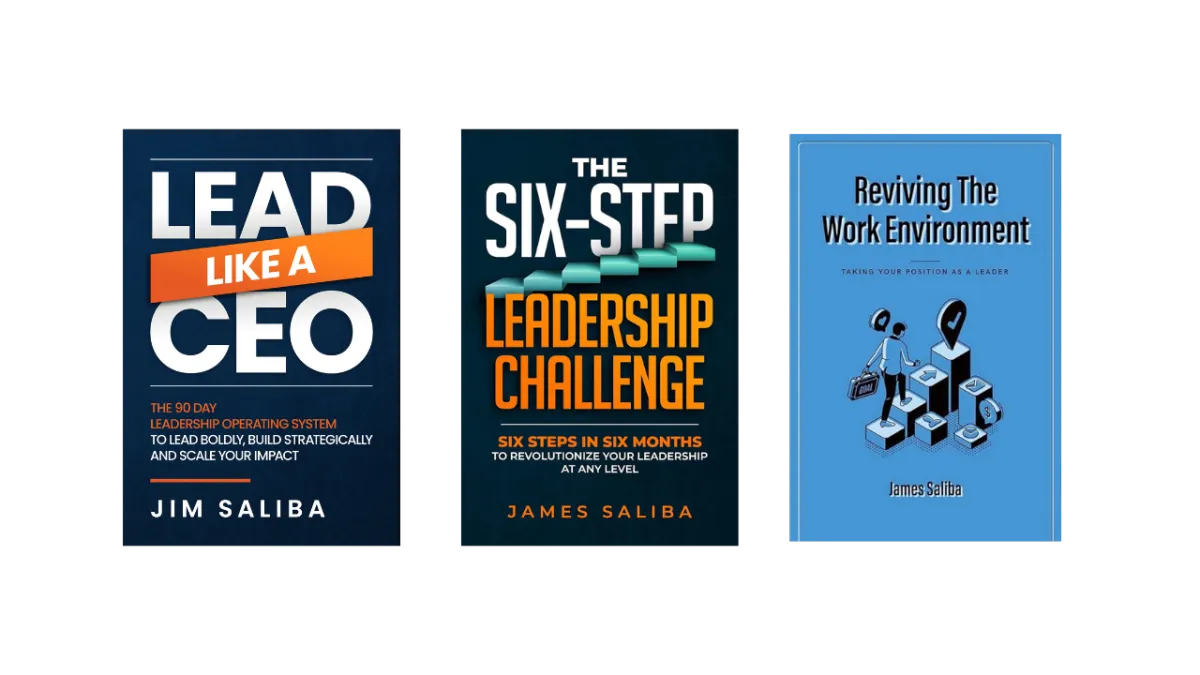Insights for Real-World Leadership
Straight talk and proven strategies for leaders who are done babysitting and ready to lead at the next level.

Unlocking Success Through Experimentation: Your Path to Overcoming Decisiveness
Failure is a natural part of life, and it often leads to valuable lessons that pave the way for success. Yet, the fear of failure can be paralyzing, preventing you from taking risks and pursuing your dreams.
I like to say: "It's not good to 'decide.'" The root of the word means to kill off, much like in words such as homicide, suicide, or insecticide. When you 'decide,' you eliminate options one by one until only one remains. However, this approach can be problematic because once your decision is in action, you may gather more data and realize it wasn't the best choice. Unfortunately, all other options have been "killed off," leaving you with failure.
But what if there was a better way?
Embracing Uncertainty: A Paradigm Shift
One way to turn failure into a valuable learning experience is through experimentation. By embracing experimentation in various aspects of your work and life, you can make failures smaller and more recoverable, ultimately paving the way for personal and organizational growth and innovation.
This is where experimentation comes in. It acknowledges that life isn't just about making decisions; it's about exploring, adapting, and thriving amid the uncertainty of life's challenges. It's a shift from the rigidity of 'deciding' to the flexibility of 'exploring.'
Corporate Experimentation: Redefining Success and Failure
In the corporate world, you often face critical decisions with far-reaching consequences. Traditionally, you're expected to analyze all available data, consult experts, and 'decide' on a course of action. But what if, instead of deciding, you embraced experimentation?
1. Controlled Risk-Taking:
Imagine taking calculated risks, gradually increasing your exposure to risk instead of plunging headfirst into uncharted territory. That's what controlled risk-taking through experimentation looks like. It allows you to manage and minimize potential failures.
2. Learning Through Failure:
In experimentation, failures aren't dead ends; they're stepping stones to success. Each failure provides valuable data and insights that guide you toward more successful outcomes. It's all about learning from your mistakes, a cornerstone of personal and professional development.
3. Building Resilience:
Embracing failure as part of experimentation builds resilience. You start viewing setbacks as temporary and necessary components of progress. You bounce back faster and with greater determination.
4. Innovation and Creativity:
Experimentation fuels innovation and creativity. It encourages you to think outside the box, explore unconventional solutions, and challenge the status quo. It's often in the experimentation process that groundbreaking ideas emerge.
Examples of Experimentation
Let's dive into some real-life examples in the corporate world where experimentation is transforming the way businesses operate:
1. Operations Optimization:
Imagine a manufacturing company that streamlined its operations through Lean Six Sigma methodology. By conducting experiments and making controlled changes, they reduced defects and increased productivity, leading to substantial cost savings.
2. Procedural Enhancements:
Picture a financial institution that experimented with meeting structures and communication channels. As a result, they reduced meeting times, improved collaboration, and made more informed decisions.
3. Product Development:
Think about a software company that employed A/B testing to refine their mobile app's design, resulting in higher user satisfaction and retention rates.
4. Business Model Evolution:
Consider an e-commerce platform that experimented with a subscription-based pricing model. Through iterative experimentation and customer feedback, they attracted a new and loyal customer base.
5. Innovative Marketing:
Imagine an online retailer that experimented with personalized email marketing campaigns. By segmenting their customer base and tailoring content to individual preferences, they achieved higher conversion rates and customer loyalty.
Tips for Embracing Experimentation
To incorporate experimentation into your life, here are some practical tips:
1. Set Clear Objectives: Define what you hope to achieve through experimentation. Having clear goals and timelines that will guide your efforts and make it easier to evaluate outcomes.
2. Keep Records: Document your experiments meticulously. Recording details of your actions, observations, and outcomes will help you learn from each experience.
3. Stay Open-Minded: Be open to unexpected results. Sometimes, the best discoveries come from what initially appears to be a failure.
4. Seek Feedback: Share your experiments with others and gather feedback. Outside perspectives can offer valuable insights and suggestions for improvement.
5. Persist: Don't be discouraged by initial failures. Persistence is key to turning failures into successes.
Experimentation is a powerful tool for making failures smaller and more recoverable. By embracing experimentation, you learn to take calculated risks, view failures as opportunities for growth, and become more resilient and innovative. So, in a world that often fears failure, dare to experiment, learn from your failures, and watch how your life transforms for the better. We're here to assist you on your journey. Book your complimentary strategy session at https://BookMyBreakthroughNow.com and unlock your path to success today.
Leaders Who’ve Made the Shift
Michael R., Senior VP

“Jim did more in two sessions than my last coach did in six months.”
(Translation: Jim doesn’t waste your time.)
Karen H., Senior VP

“Jim made it easy to focus on the real leadership challenges.”
(Translation: No fluffy theories. Just real talk and results.)
Ashly N., Director

“Within 15 minutes, I knew I’d made the right decision.”
(Translation: You’ll know fast if Jim’s your coach.)
Stop Acting Like the Chief Fire Extinguisher.
Start Leading.
You know the endless approvals, babysitting, and check-ins aren't real leadership. Let's fix that.
© 2026 James Saliba Inc. • All Rights Reserved • Helping Tech Leaders Lead Strategically Without Firefighting • Terms & Conditions


